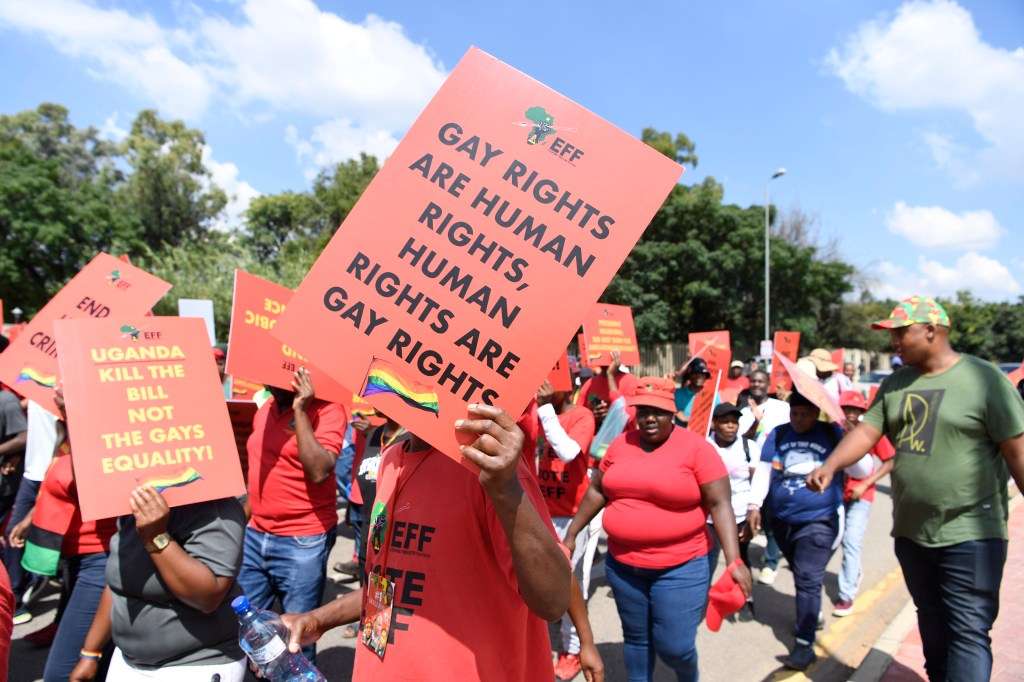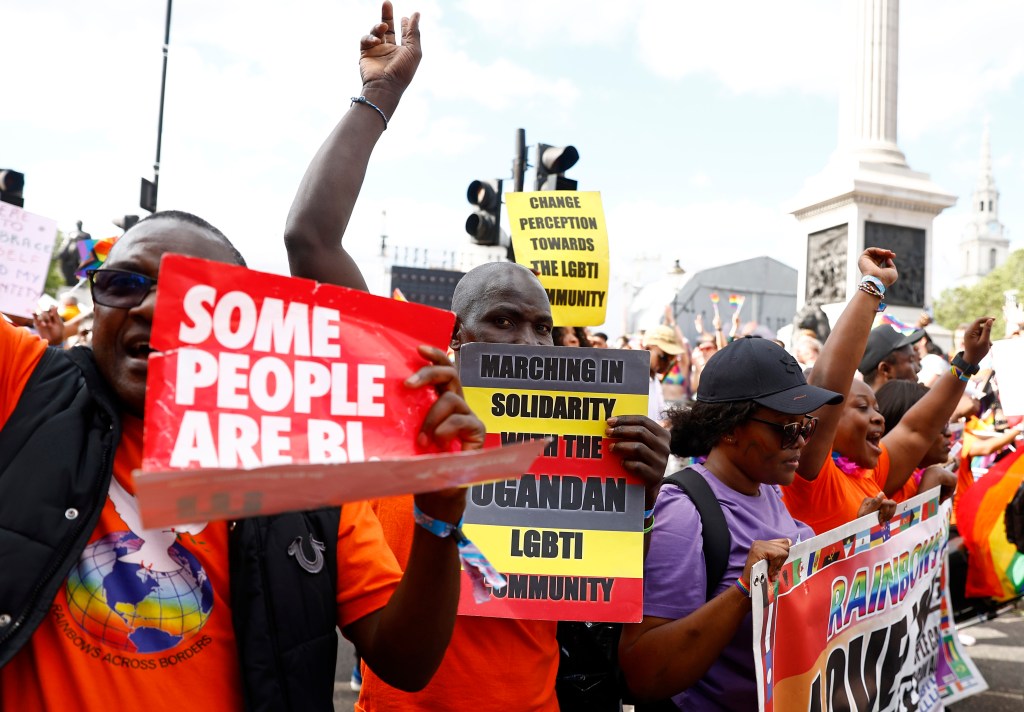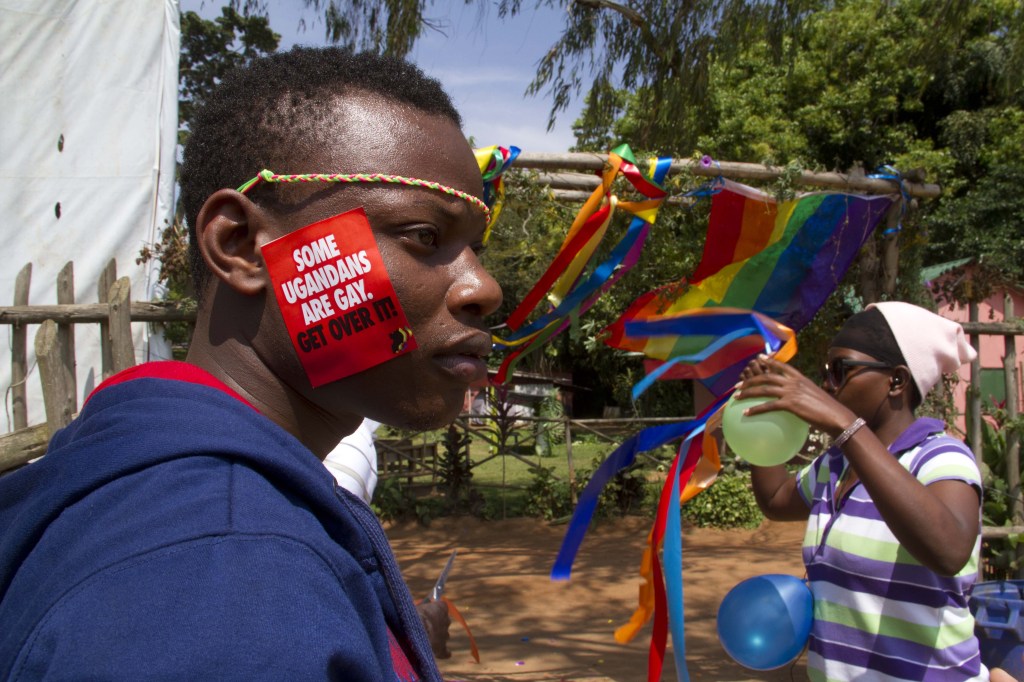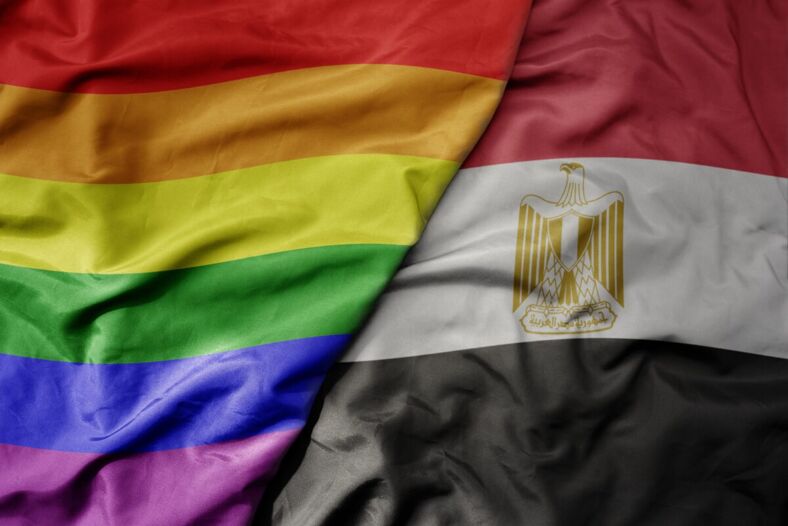Dayling Ramírez says that each day that passes is a challenge to overcome because, despite having survived the persecution of the Mara Salvatrucha gang and the abuses in an immigration station in Mexico, Ramírez hasn’t yet fully integrated into the country’s society.
“We trans people have a hard time getting hired, it’s horrible. Here you survive if you are a stylist or if you are a prostitute, otherwise not. They don’t give you work,” said Ramírez, a 36-year-old Honduran trans woman who lives in Mexico City.
Mexico has become one of the largest migratory corridors in the world. In fiscal year 2023, U.S. Customs and Border Protection (CBP) recorded 2,045,838 encounters on the U.S. border with Mexico. So far in 2024, the figure already stands at 1,160,805. In the midst of this vast flow of migrants, the LGBTQ community is increasingly present in Mexican territory.
“The presence and visibility of the LGBT migrant population in transit has become increasingly visible in Mexico,” said Ana Guadarrama, general coordinator of Mexico’s National Network of Support for LGBT Migrants and Refugees (REDAPM).
Guadarrama and other experts said that the increase in the arrival of LGBTQ migrants can be traced back to 2013 but, above all, after 2017 when the first Trans Gay Migrant Caravan was formed.
“We have seen an increase because the presence and visibility of gay men and trans women is undoubtedly much greater, whether in specifically LGBT care spaces or in a general way within the programs that provide support to the population in transit in the country,” Guadarrama said.
A new campaign spearheaded by the Organization for Refuge, Asylum and Migration (ORAM), which assists LGBTQ asylum seekers, has launched a campaign in Mexico to raise money to offer safe shelter, food and transportation for a month to 100 LGBTQ refugees or asylum seekers in Mexico City.
“We always think of Mexico as the country from which migrants leave for the United States, but it has already become a place where people from other places pass through on their way to the United States, Canada or even people from the LGBT community who see Mexico as an opportunity to have a life that is a little safer, a little freer,” Enrique Torre Molina, an activist and member of the ORAM board, said.
Torre Molina states that the idea is to raise 400,000 Mexican pesos (approximately $21,670) to help 100 migrants for 30 days, through organizations that have physical spaces such as shelters and houses where they receive LGBTQ people, migrants, refugees. and asylum seekers.
In the last three years, Mexico has recorded 231 murders of LGBTQ people: 78 in 2021, 87 in 2022 and 66 in 2023, according to data from Letra S : Sida, Cultura y Vida Cotidiana, a civil organization dedicated to the defense of LGBTQ people who has recorded these cases since 1998.
On average, six people were killed each month. However, Letra S’s investigation states that this figure doesn’t reflect actual numbers, because many murders are not covered by the media nor are they reported to the authorities.
“We have become a country where there are more and more migrants and refugees. And when migrating or passing through Mexico, in addition to the violence, the insecurity of organized crime and the threats that any migrant or refugee experiences, the LGBT community faces additional discrimination based on their sexual orientation or gender identity,” Torre Molina said.
In March, the United Nations Refugee Agency (UNHCR) published a report in which they surveyed more than 15,000 migrants who crossed Mexico during 2023. They found 56% of migrants who participated in the surveys said they suffered some type of of abuse, such as robbery or physical threats
The civil association Stop Kidnapping reported 772 migrant kidnappings in 2023. As of March of this year it recorded a figure of 521 kidnapppings, of which more than half were undocumented people.
“We are a community that experiences discrimination and violence. In some cases, LGBT people are in danger precisely because of the rejection of their sexual orientation or gender identity, and this affects migrants or refugees differently. Sometimes it is not that these people decide to migrate, but that they are forced to cross an international border, looking for a safe place and freedom,” Torre Molina said.
The ‘triple vulnerability’ of LGBTQ migrants
For Dana Graber Ladek, head of mission of the UN’s International Organization for Migration, an important aspect of LGBTQ migrants who arrive in Mexican territory is the “triple vulnerability” they suffer.
“First, they are stigmatized because of their sexual orientation or gender identity and second because they are migrants. Furthermore, many of these people are in an irregular situation, they are not documented in the country, so that is like a triple vulnerability that they experience in Mexico,” she said.
According to several researchers including Graber Ladek, one of the big problems of the LGBTQ migrant population is the absence of more data and information about them.
“The great challenge we have in Mexico, and also in other countries in the region, is to understand the statistics and characteristics of this population because they really are invisible people who migrate in an irregular, undocumented way,” she said. “So there are more challenges in terms of understanding where they are, what their priorities are, their interests, etc. And the National Migration Institute is not collecting this data from migrants.”
The IOM does conduct surveys that ask about issues of sexual identity or gender identification in order to understand what challenges these migrants face.
Noticias Telemundo contacted Mexico’s National Migration Institute and the Ministry of the Interior to have access to the most recent data on the LGBTQ migrant population, but spokespersons for both institutions didn’t respond at the time of this report.
In the absence of figures, various organizations offer their internal data to show the increase in the LGBTQ migrant population in Mexico. This is the case of REDAPM, which in 2021 responded to requests from 150 LGBTQ migrants, 300 in 2022, 368 last year, and so far in 2024 they have already assisted 250 people.
“Recognizing ourselves within statistics is a fundamental step for the possibility of creating public policies, programs and services that meet needs,” Guadarrama said. “If we do not have that information, many of the actions or services that we are being generated, they are not reaching the populations.”
For now, ORAM’s campaign to offer shelter and help to LGBTQ migrants in Mexico City continues and has the support of people like Ramírez who experienced firsthand the difficulties of arriving in a big city without knowing anyone.
“I have experienced so many things here, I was in many shelters, I had to get involved in prostitution and I was mistreated, beaten, I was even kidnapped,” she said. “This project is going to help a lot so that people can find a safe place where they will not be discriminated against, and can have a roof over their heads and a plate of food, even if it is for a few days. There are opportunities, but you have to fight for them and I would not like them to experience everything that I have experienced.”






